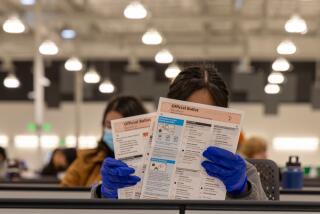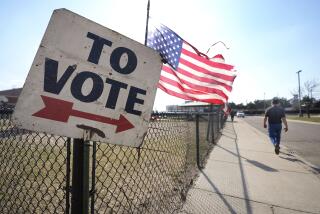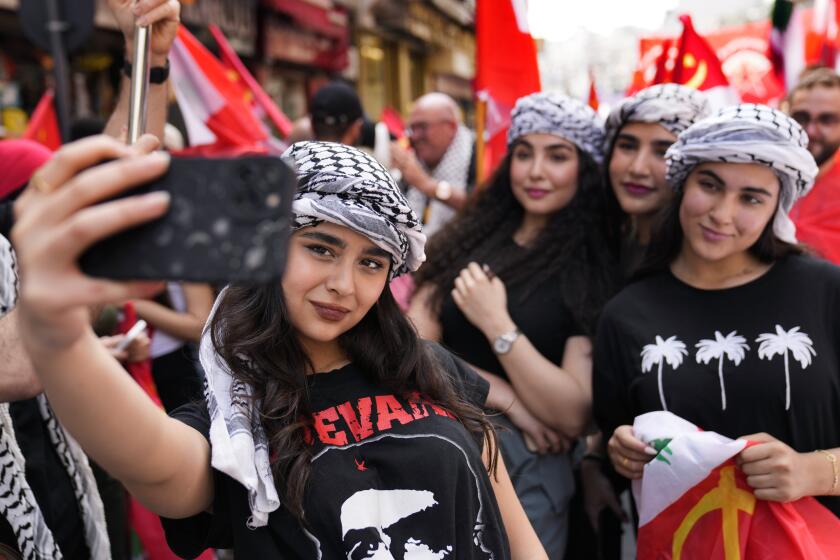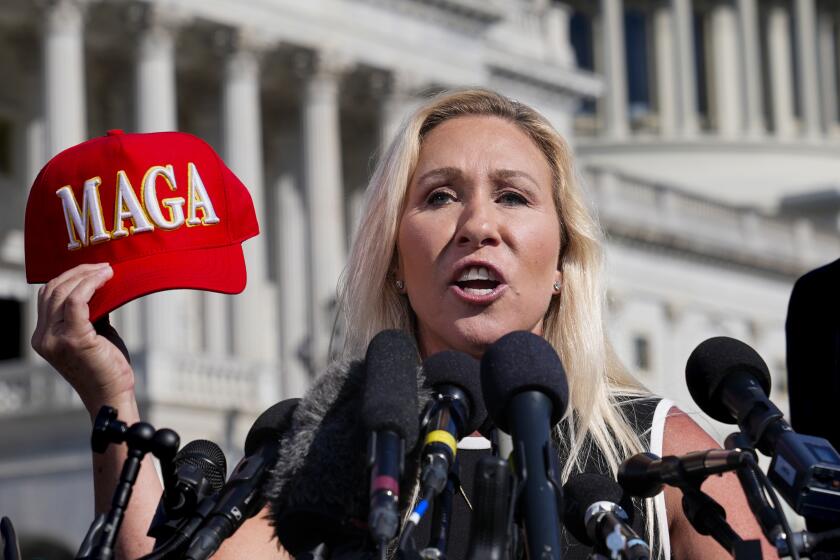In Egypt, cynicism rises ahead of parliamentary vote
Once an outpost for camel traders, the Cairo neighborhood of Imbaba is an unforgiving stretch along the Nile, suspicious of political promises and candidates in polished shoes who disappear before the tea cools.
The neighborhood’s blacksmiths, spice sellers and boys who careen in motorized rickshaws known as tuk-tuks, work far from the protests in Tahrir Square. If the square is the epicenter of revolt and idealism, then Imbaba is the gritty crisscrossing of alleys and streets where Egypt, in all its desperation and anger, lives.
The nation’s first round of parliamentary elections that begins Monday has roused little enthusiasm for many in Imbaba, which for years was an Islamic stronghold against a police state. The rebellion that toppled Hosni Mubarak in February has not delivered better opportunity, and the mothers and fathers in this warren of more than 2 million people don’t expect that elections will, either.
“It is simple,” said Walid Mahmoud, a 31-year-old who lives off several part-time jobs, including hauling coal. “The people are tired. We have had 30 years of this. No jobs, no money. We are tired.”
The elections mark a crucial moment in a country that helped inspire uprisings across the region. But the issues that affect Egyptians most — poverty, unemployment, failing education and healthcare — have been lost in an incomplete revolution that has veered into political struggles and protests against military rulers who refuse to relinquish power before the middle of next year.
The prospect of putting a new parliament in place, even if it will be answerable to the army, is expected to draw high turnout among 50 million eligible voters in the first free elections in decades. The races among more than 6,000 candidates for 498 seats have left cities and villages awash in campaign banners of smiling candidates and acronyms and symbols to guide the illiterate through confusing ballots.
“Who is this guy?” said Ramy Sizar, a 25-year-old university graduate turned butcher, pointing to the campaign poster. “He wants to get my vote but I don’t know him, how can he know me? Why should I believe he can give me a better life?”
Such is the mood in Imbaba.
Ultraconservative and moderate Islamists, including the Muslim Brotherhood, which is expected to win as much as 30% of the seats in parliament, have campaigned heavily here. The neighborhood — illegally built apartment buildings that multiplied as villagers migrated to Cairo — has long relied on the Brotherhood’s social and religious programs and was once known as the “Islamic Republic of Imbaba.”
“Right now in Egypt we have the rich and the poor but nothing in between,” said Magdi Abdulsalem Hussein, a plumber who supports the Brotherhood’s Freedom and Justice Party. “The party will make everyone equal.”
In many ways, Egypt feels too unsettled for elections. Tear gas lingers and the chants of protesters swell in Tahrir Square. A tenuous truce is holding between demonstrators and security forces as riot police stand ready in Cairo and other cities after the violence last week that killed 42 people and left about 2,000 others injured.
“We will not allow troublemakers to meddle in the elections,” Field Marshal Mohamed Hussein Tantawi of the ruling military council said in comments posted on the website of state-owned Al-Ahram newspaper. “We are at a crossroads. There are only two routes, the success of elections leading Egypt toward safety or facing dangerous hurdles that we in the armed forces, as part of the Egyptian people, will not allow.”
The political choices are dizzying for a country once accustomed to the former ruling National Democratic Party winning at least 80% of a rigged vote. Liberals, leftists, nationalists, socialists, Facebook activists, mystics and remnants of the old regime, who have reinvented themselves as independents, are all pressing to carve inroads into the Islamists’ grass-roots popularity.
“If politicians fail to restore the 25 January revolution spirit, Egyptians will curse all politicians,” independent columnist Hamdi Kandil wrote in Al Masry al Youm.
Imbaba can at once seem distinct from and representative of the rest of the nation. Sectarian strains between Muslims and Coptic Christians flared in the neighborhood in May when 12 people were killed in attacks on two churches by ultraconservative Islamists. The incident showed, in part, how radical elements can manipulate a population that has lost trust in civil authority.
Garbage tumbles over the broken streets and rusted metal rods poke from unfinished buildings in Imbaba. Government corruption was the hallmark of the Mubarak regime. But today there is a deep sense of uncertainty, a sense that no one — not the generals, politicians or activists — has a plan to reach in and fix the lives of the majority of Egyptians who live beyond the slogans of Tahrir.
“Nothing has changed,” said Mohammad Ahmad, a 26-year-old unemployed university graduate. “Things are worse than ever. I want a wife and a family but I can’t even get a job to provide for myself. How can I provide for a family too?”
Lodge is a special correspondent.
More to Read
Start your day right
Sign up for Essential California for news, features and recommendations from the L.A. Times and beyond in your inbox six days a week.
You may occasionally receive promotional content from the Los Angeles Times.







